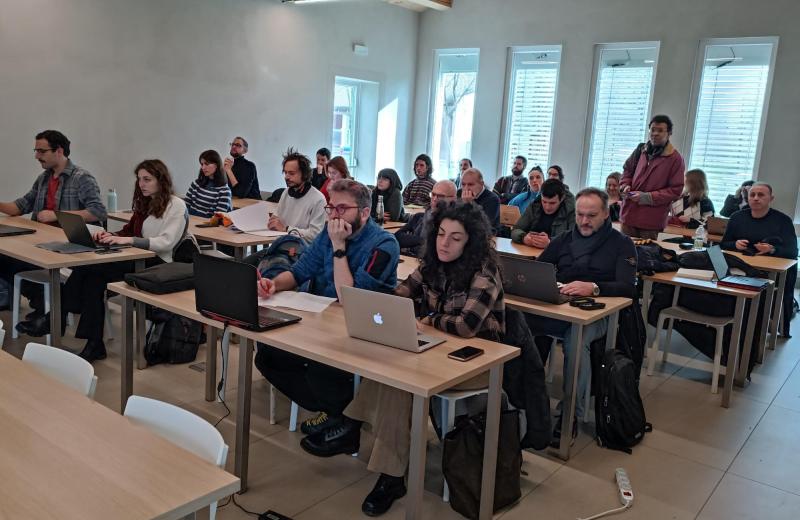The training course ‘VeZ+ Methods of Environmental Investigation for Young Journalists' comprises lectures and workshops by well-known professionals and focuses on theoretical and practical skills related to environmental investigative journalism such as data journalism, community engagement, GIS technologies and more. The Veneto Journalists' Association (Ordine dei giornalisti del Veneto) is also supporting the implementation of this programme.
20 young journalists were selected after an application round. These were joined by a number of professional journalists, averaging 15-20 enrolled for each training session.
I got insights into the complexity of investigative work in its many aspects. Among others, the retrieval and representation of scientific data, access to public administration records on environmental issues, observation of the decision-making process within European institutions, dialogue with communities and the interpretation and reporting on social phenomena. - Riccardo Galfetti
Tutors Alice Carollo and Lorenza Zago have been assisting the group.
The following sessions took place between March and May 2024:
- "Tools and methods of investigative journalism to investigate an environmental conflict", with Carlotta Indiano and Francesca Cicculli
- "Tools of Data Journalism", with Riccardo Saporiti
- "Engaging Communities in Journalistic Reporting", with Dario Basile
- "Satellite technologies for investigating territories", with Giuseppe Della Fera, Daniele Codato, Fabrizio Stelluto
- "Coimpo: a case study of waste treatment in Veneto", with Gianni Belloni
- "Water and rivers: resources to know and protect", with Elisa Cozzarini
- "Environmental mobilisations in the Euganean Hills", with Francesco Miazzi, Efrem Tassinato
- "The European Union and Environmental Legislation", with Davide Sabbadin, Fabrizio Stelluto
The course was wonderful. The selection of speakers and professionals was spot on and they conveyed content and practices that I did not know and that are coming in very handy in my work. I wish there were more initiatives like this. — Luigi Patuzzi
In June and July, the participants of the training course worked in groups on the lines of enquiry shared during the meeting on 25 May.
The journalists were divided into three groups, working on three themes:
- biodiversity: the Euganean Hills are a regional park, but their biodiversity is threatened by various elements, which the group intends to investigate;
- quarries: the Euganean Hills have historically been home to a large number of quarries, most of which have been closed after long environmentalist struggles; however, many quarries are abandoned, or used improperly;
- cement factories: the Euganean Hills have hosted numerous cement factories, of which one now remains active; these are very polluting plants, in conflict with the area's environmental and tourist vocation, and their future is uncertain.
Tutor Lorenza Zago held two online monitoring meetings, which took place on 20 June and 11 July.
A further follow-up meeting told place in August. Editing work was then be carried out by tutors Lorenza Zago and Alice Carollo, under the supervision of Giulio Todescan.
Between September and November 2024, the articles resulting from the collective investigation work were published on vez.news (you can find the links on the right).
I would certainly recommend the experience of the ‘VeZ+ Environmental Investigation Methods for Young Journalists’ course to anyone interested in the world of information and journalistic activity, with particular regard to environmental issues. — Riccardo Galfetti

